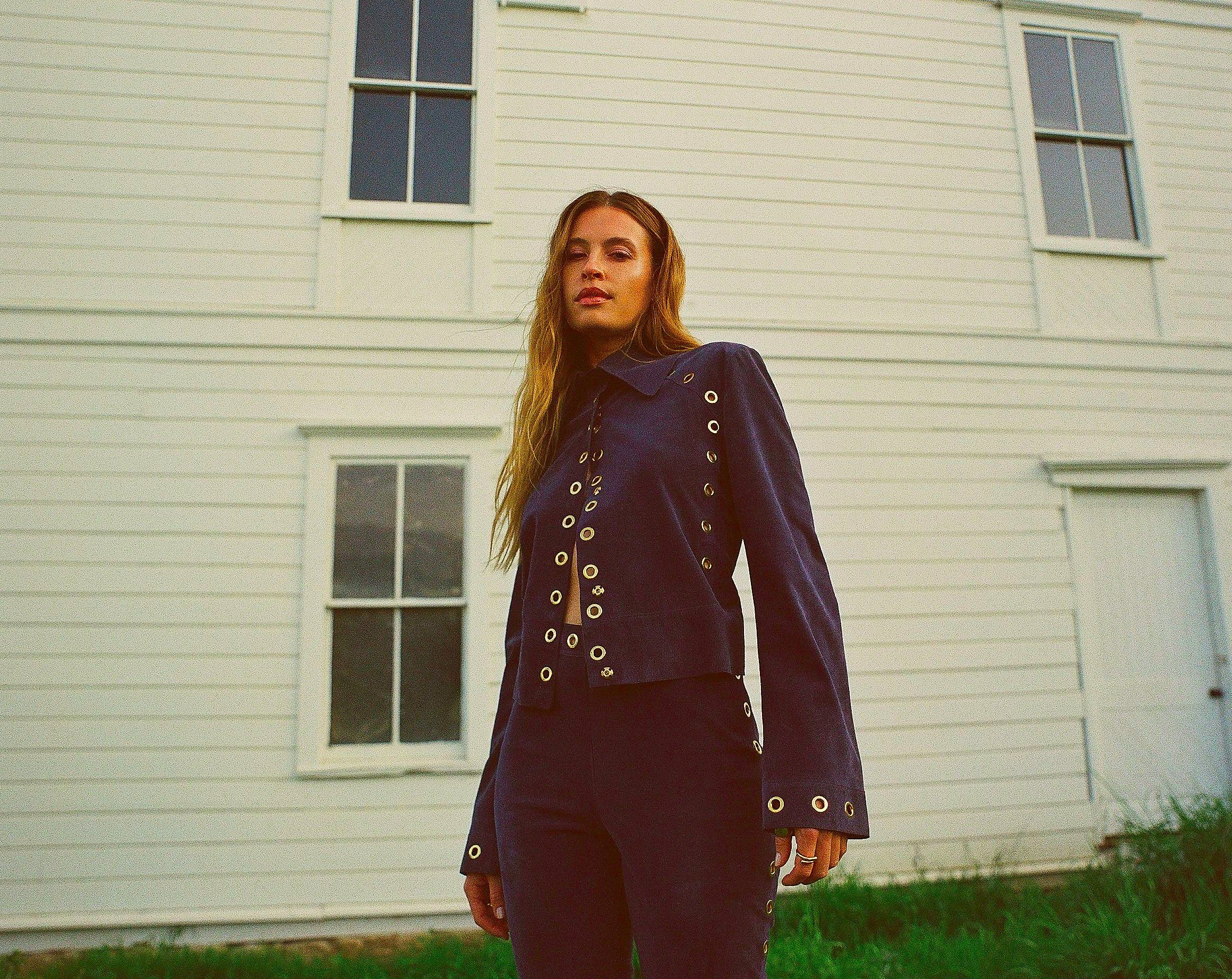Exploring FLETCHER’s Depth: More Than Just Chaos and Queerness
Previously, many described FLETCHER’s image using two words: chaotic and queer. Her music often embraced a sense of disorder, and her performances attracted a predominantly LGBTQ+ audience, particularly lesbians and queer women. The 2022 release of “Becky’s So Hot,” a song publicly addressing her ex-girlfriend’s new partner, further cemented this perception of the 31-year-old pop star as someone who embraces drama. When asked to describe her in one word during a tour, “chaos” was the most frequent response, she recalls.
However, the singer, whose real name is Cari Fletcher, is now entering a new phase. While elements of chaos and her unwavering queer identity remain, her latest album, Would You Still Love Me If You Really Knew Me?, showcases a more vulnerable and tender side. She explains that her past performances aimed to create an intense experience for the audience, sometimes at the expense of her own feelings. This new approach prioritizes a different kind of connection.
This “party,” consisting of twelve introspective songs, offers an intimate glimpse into the New Jersey native’s life. The album retains her autobiographical style but exhibits a new level of openness. The lyrics move beyond romantic relationships, exploring her struggles within the music industry and her evolving sexuality. The final track, “Would You Still Love Me?”, concludes with spoken-word reflections, posing challenging questions about self-acceptance and external validation.
The lead single, “Boy,” which details a relationship with a man, generated significant controversy upon its release, particularly given her previous focus on same-sex relationships and the timing of the release at the beginning of Pride month. This prompted criticism, including an opinion piece questioning her actions. Fletcher acknowledges the negative reactions but remains steadfast in her identity and her commitment to inclusive spaces for her LGBTQ+ fanbase.
This album represents a personal journey and an authentic self-portrait. Fletcher emphasizes her unwavering queer identity, stating, “I’m queer ’til the day that I die.” She embraces all aspects of herself – the chaos, the vulnerability, and the tenderness.
An Interview with FLETCHER
On the album’s personal nature: Fletcher considers this her most personal project yet, adding a new layer of intimacy compared to previous work. While her past music centered on relationships, this album encompasses broader aspects of her life, including her experiences as a public figure and artist.

On the distinction between herself and her stage persona: Fletcher views her stage name as a separate entity, one that embodies strength and confidence, qualities she found helpful in managing anxieties. However, she affirms that the two are intrinsically linked.
On the album’s rapid creation: The album’s quick production resulted from a challenging year involving significant personal and professional struggles. Music served as an outlet for processing these emotions. The final track list contains only the songs written, reflecting an intentional lack of overthinking.

On the future of touring: The singer is taking a break from touring to prioritize her well-being and rediscover her love for music-making, unburdened by the pressures of the music industry.
View full post on Youtube
On the release of “Boy”: Fletcher discusses her apprehension about releasing “Boy” but emphasizes the importance of authenticity and self-expression in her career. She highlights the overwhelmingly emotional journey following the song’s release.
On fan reactions and deleted content: Fletcher addresses the harsh criticisms and online harassment, emphasizing the validity of all perspectives. She clarifies the removal of older Instagram posts as part of a broader effort to signal a new chapter and not as an erasure of her past.
On maintaining composure amidst criticism: Fletcher reflects on the constant chaos throughout her career, including a period of intense touring and a health diagnosis. The new album, she explains, represents a deliberate shift towards embracing her gentler and more vulnerable side.

On the fluidity of sexuality: Fletcher discusses the importance of understanding the fluid nature of sexuality and gender, stressing the need for empathy and acceptance of individual journeys.
Note: This interview has been edited and condensed for clarity.
